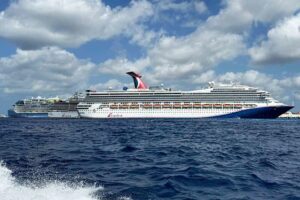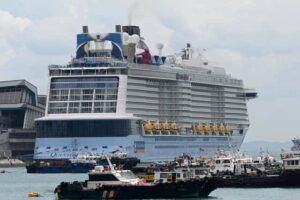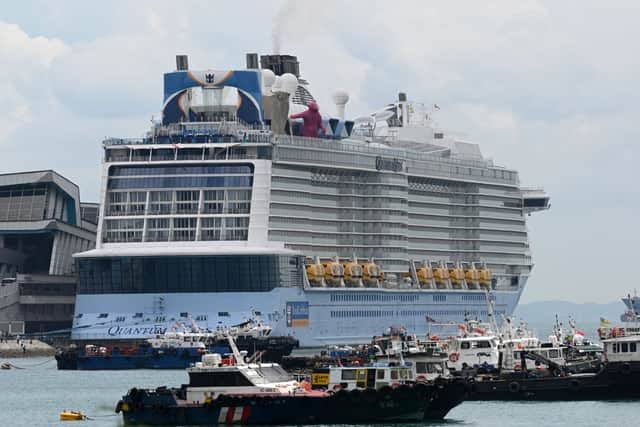Popular Cruises Suspend Island Stopover Over Escalating Gang Violence: What to Know
Several major cruise lines have recently suspended stopovers to a once-popular Caribbean island destination due to a surge in gang-related violence. The decision has raised concerns among travelers, impacted local economies, and highlighted growing security challenges in the region. Here’s what you need to know about the suspension, the reasons behind it, and its broader implications.
Background: A Troubled Paradise
The island in question—often praised for its turquoise waters, vibrant culture, and historic significance—has long been a favored stop for Caribbean cruise itineraries. However, in recent years, it has grappled with rising violence linked to organized crime and armed gangs. What was once a lively tourism hub has become increasingly dangerous, with escalating reports of kidnappings, shootings, and lawlessness, particularly in and around the capital and key port cities.
While the island’s name has not been officially disclosed in some cruise line statements, multiple reports point to Haiti, particularly its port at Labadee, as the affected destination. Labadee is a private resort leased exclusively by Royal Caribbean, offering a controlled environment for tourists. However, the intensifying violence in nearby areas has raised concerns about potential spillover and the safety of guests and crew.
Cruise Lines Take Action
Royal Caribbean, one of the world’s leading cruise operators, announced it is temporarily removing Labadee from its itineraries “out of an abundance of caution.” Other cruise lines, such as Celebrity Cruises and Norwegian Cruise Line, are reportedly reviewing or have already altered their planned stops to the region.
A Royal Caribbean spokesperson stated, “The safety of our guests and crew is our top priority. Due to ongoing unrest in the region surrounding Labadee, we have made the difficult decision to cancel upcoming stops until further notice.”
This move is not unprecedented—similar suspensions occurred in the past during periods of political instability or natural disasters. However, the scale and unpredictability of the current violence have prompted a more extended halt in operations, with no immediate timeline for resumption.
The Escalating Crisis
The decision by cruise lines reflects a broader crisis facing the country. Gang violence in Haiti has surged to unprecedented levels. According to reports by the United Nations and humanitarian groups, over 80% of the capital, Port-au-Prince, is under gang control. Criminal groups are not only fighting each other for territory but are also involved in drug trafficking, extortion, and attacks on civilians.
In recent months, these gangs have carried out coordinated assaults on government buildings, police stations, and even airports, prompting the declaration of a state of emergency. The security situation has deteriorated to the point where international organizations and embassies have evacuated staff or restricted operations.

Economic and Social Impact
The suspension of cruise visits will have a significant economic impact on local communities that depend on tourism. In areas like Labadee, hundreds of residents earn their livelihood by providing services to cruise passengers—from guided tours and water sports to artisanal crafts and food stalls.
Many of these workers are already struggling due to broader economic instability and food insecurity. With the loss of tourism income, their situations may worsen, potentially driving more desperation and unrest.
Local leaders have expressed frustration, calling for international assistance to restore stability and protect economic lifelines. “The people of Haiti want peace and opportunity,” said one community organizer. “We cannot afford to lose the little tourism we still have.”
Traveler Guidance
For those with upcoming cruises, it’s essential to stay informed. Cruise lines are offering alternative ports of call or onboard credits as compensation for the canceled stopovers. Passengers are encouraged to review travel advisories from their respective governments and maintain open communication with their cruise providers.
The U.S. Department of State has issued a Level 4 “Do Not Travel” advisory for Haiti, citing crime, kidnapping, and civil unrest. Travel insurance with strong trip interruption and evacuation coverage is highly recommended for any Caribbean traveler, especially as the regional situation remains fluid.
Looking Ahead
While the future of cruising to the island remains uncertain, cruise lines are actively monitoring the situation in hopes of resuming operations once it is deemed safe. Regional governments and international organizations are also discussing strategies to help stabilize the country, including a proposed multinational security force led by Kenya.
Until then, travelers, cruise operators, and residents alike face difficult decisions. The suspension is a reminder that tourism—while a source of joy and income—cannot exist in isolation from the broader socio-political landscape.













